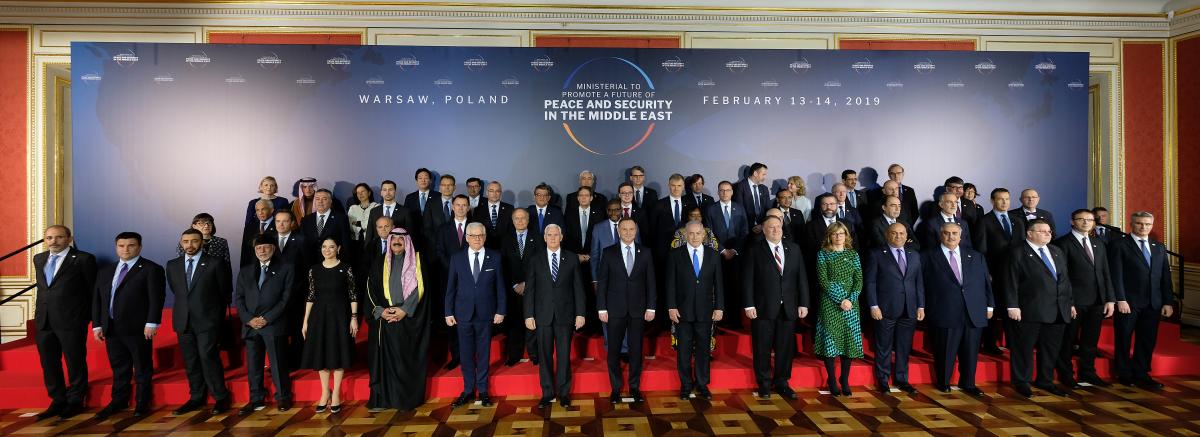One official I met in travelling in the Middle East said, “There are two projects in the Middle East. One is Turkey, Qatar, and Iran and the other is Saudi Arabia, the Emirates, Egypt, Jordan and Israel. And, the United States should be supporting the latter group because they are committed to preserving the long-term stability of the region.”
It was an interesting statement that has many parts to it. First, obviously Turkey, Qatar and Iran are not the same. But this official was saying that Turkey and Qatar are basically about supporting the Muslim Brotherhood, and that means promoting a Sunni Islamist approach to the Middle East. And the implications of that are to promote a new regional order where borders need not be respected, and Islam will be politicized for the purpose of monopolizing power. Turkey is the senior partner in the pursuit of this new Middle East. Iran, of course, is different. While it, too, seeks to change the regional order, it is to serve a Shia Islamist agenda and in this case Iran’s dominance of the area—and it uses terror and intimidation to pursue its longer-term aim of hegemony.
Second, the alternative grouping may also not be the same, but they share a similar strategic orientation: nation-states and their sovereignty are to be respected, non-state actors and their militias are threats that must be resisted, and the existing political order offers the most hope for long-term stability.
Third, the statement that America should be supporting this second group implies that it is not currently doing so. That would come as news to the Trump Administration which probably believes that it is doing so. Perhaps, the intent of this official was to convey that the Trump Administration was not sufficiently acting to support this second group.
Here again, we probably see two different meanings. On the one hand, the Trump Administration approach to Turkey and Qatar was worrisome to this official. In effect, he was saying that America does not seem to recognize that Turkey and Qatar are acting in a way that ultimately will threaten the stability of the region and US interests in it. The implication was that the Administration’s relationship should be shaped differently, pressuring more and acquiescing less with these two states.
On the other hand, when it comes to Iran and the Shia militias, the America policy—at least in the eyes of this official—seemed to be that it was tough rhetorically and economically but not necessarily in a way that was countering their actions on the ground. A propos of that concern, the policy on Syria seemed geared only to ISIS. Moreover, the president’s declaration on withdrawal suggested that Iran could entrench itself there if it chose to do so. The reversal now to keep 400 US special forces in Syria for at least the time-being is probably reassuring to this official but does not necessarily address his concerns about America’s priorities and staying power in the region.
There is one last element of the statement that I found interesting and thought provoking. The inclusion of Israel in the group suggested something else: there may not be normalization with Israel, but there is a new normal in the region between many Arab leaderships and Israel. Israel is seen as sharing the same basic strategic orientation as these leaderships. Its leadership sees the same threats—both from Iran/Shia militias and from radical Sunni Islamists. Moreover, Israel does not just talk about these threats but acts against them. Ironically, the more the US is doubted—something that began in the region under Obama and continues under Trump—Israel is perceived in practical terms as a silent partner. In a real sense, Israel becomes a bulwark against common threats. But cooperation with it remains mostly below the radar screen because of the Palestinian issue. Still, it means that leading Arab states will quietly work with it and even in international settings, there will be a willingness to engage in discussions with it. I certainly saw that in the recent Warsaw Conference where panels were held almost as if they were seminars geared toward trying to come up with the best ideas and approaches for countering the Iranians and extremist groups. (In serving as a moderator there and observing this, I felt that the Palestinians had made a mistake by boycotting the conference; had they been there every Arab minister and many of the Europeans would have pushed the Palestinian issue and the need to address it. But without their presence, it was discussed only in passing and was clearly subordinate to threats that were seen as far more pressing.)

What should we make of all this? Because I believe this particular Arab official is, in fact, representative of many others in leading positions in Arab states, it is important for the Trump Administration to recognize there is a problem. It should engage in quiet strategic discussions with key Arab leaders and do a better job of explaining what it is willing to do vis-à-vis Iran in the region as well as what it expects from regional partners. It also needs to explain its policies toward Turkey now; yes, it is a member of NATO and yes it is a critical player in Syria now, and it is essential to reach some understandings with Turkey on what will and not happen in northeastern Syria. Beyond that, however, the Administration needs to hear the concerns that many Arab leaders now have about Turkey and show it is not only aware of them but will factor them into our policy.
Sometimes short statements can reveal a great deal. Clearly, the Arab official I quoted on the two competing projects in the region offered an interesting take on the Middle East and the implications for how the Trump Administration should be approaching it.









